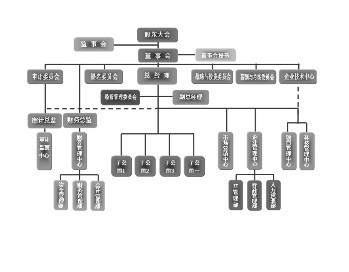
Business Dual-class share structures The cost of control
商業 雙重股份制結構 控制的代價
The trouble with non-voting shares
無選舉股份的麻煩
SHAREHOLDERS in News Corporation have only themselves to blame. When they entrusted Rupert Murdoch with their money, they knew he would not let them tell him what to do with it. The Murdoch family owns about 12% of the company but controls almost 40% of the votes, through a special class of shares which have superior voting rights. Such "dual-class" share structures are quite common, especially at media firms. (The Economist Group has a version.) They can shield managers from stockmarket short-termism and hostile takeovers. But they cause problems, too.
新聞出版公司的股東只能為他們的行為買單。當將自己的錢委托給魯伯特·默多克時,他們知道他不會讓他們告訴他該怎樣處理這些錢。默多克家族擁有公司12%的股份,卻控制著40%的股權,這更高的表決權就是通過一種特殊的股份標準實現的。這種"雙重標準"股份制結構相當常見,特別是在傳媒公司中。(經濟學人合作團隊就是個例子)。他們可以使經理人免受由股票市場短期損益和敵對的收購帶來的損失。
Two studies of American firms by Paul Gompers, Joy Ishii and Andrew Metrick, covering the years from 1994 to 2002, found that dual-class firms perform worse than comparable firms where all shares confer equal voting rights.
兩項由Paul Gompers,Joy Ishii 和Andrew Metrick三人進行的對美國公司的研究包括了1994年到2002年的內容,發現當所有股東商談平等投票表決權時,實行雙重標準的公司表現的比同類公司差勁。
Dual-class firms are fonder of debt than equity, to prevent the dilution of controlling stakes. Yet surprisingly, their shares do not trade at a big discount on stockmarkets. A study by Chad Zutter and Scott Smart found that dual-class initial public offerings (IPOs) achieved only slightly lower price-earnings and price-sales ratios than comparable single-class IPOs。
實行雙重標準的公司更傾向于運用債務而不是資本金來降低控制風險。然而令人吃驚的是,他們的股份不會在股票市場上以很大的折扣進行交易。一項由Chad Zutter和Scott Smart主持的研究發現,雙重標準IPO達到的跟同類單標準IPO公司相比只是輕微地降低了市盈率。
Nor does this strange ownership model show any sign of going out of fashion. There were 12 dual-class IPOs in America last year, not far from the norm for the nine-year period in the 1990s studied by Mr Zutter and Mr Smart.
但這種奇怪的所有權例子也沒有任何過時的跡象。美國去年有12家進行雙重標準IPO的公司,這與Zutter和Smart先生研究的20世紀90年代中實行的標準相差無幾。
Dual-class structures are not just a way for press barons to keep their hands on the hatchet with which they threaten governments. Internet firms love them, too, since they allow founders brimming with self-belief to raise cash without surrendering control. Google's IPO in 2004 involved two classes of share. LinkedIn followed suit this year. The IPO filings of Zynga and Groupon would also grant managers control over voting rights.
雙重標準結構并不只是一種讓出版業大王高舉斧頭威脅政府的一種方法。因特網公司業很喜歡他們,因為他們允許創辦人滿懷自信地籌集資金而不聽從別人的擺布。谷歌在2004年進行的IPO就實行了這種雙標股份制。在接下來的幾年里都是這樣的。IPO檔案管理者的Zynga和Groupon也會準予經理人對投票表決權進行控制。
Investors who seek long-term gains may be happy to cede control if they think the boss is a genius. It worked for the holders of B shares in Warren Buffett's Berkshire Hathaway. It once worked for investors in Mr Murdoch, too. But tech punters have not been so lucky. The number of dual-class firms listed in America fell from 482 in 2000 to 362 in 2002 as the dotcom bubble burst. If the current internet boom follows a similar path, News Corporation shareholders will not be the only ones feeling second-class.
找到長期獲利的投資者也許會很高興地把操縱權轉讓,如果他們認為老板是個天才的話。他曾經在華倫巴菲特的Berkshire Hathaway中為B股股東工作。他也曾經在默多克為投資者服務。但技術投資者就不會這么幸運了。雙重編制公司在美國的數量由于受到網絡公司泡沫破裂的影響已從2000年的482家減少到2002年的362家。如果現今的因特網向同樣地方向發展,新聞公司股東將不會是唯一感受到不被重視的人。











